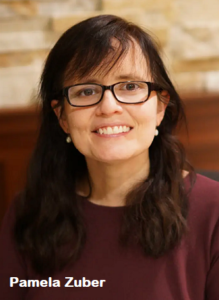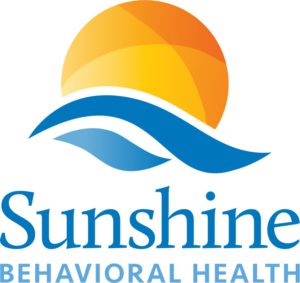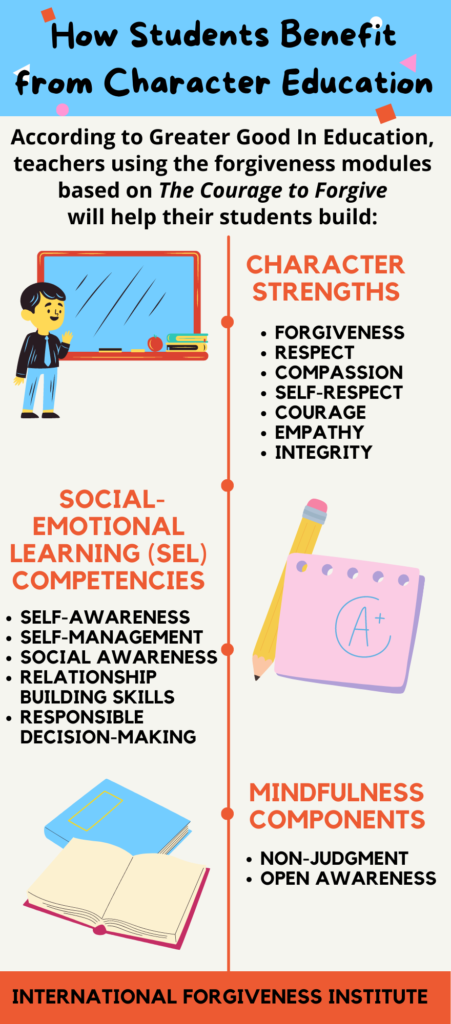Tagged: “Inherent Worth”
How Forgiveness Can Eliminate Grudges and Improve Your Mental Health
Fights and disagreements are ubiquitous. At some point, even the most agreeable of us have argued with or felt betrayed by someone we love. After a major fallout, you may think you’re entitled to hold a grudge. After all, how else can you demonstrate your displeasure, hurt, and anger? But holding onto hurt feelings may hurt you more than anyone else, due to the negative effects long-term resentment can have on your mental health.
Negative Effects of Holding a Grudge
By definition, a grudge can be described as an ill feeling or resentment toward someone who has wronged you in some way. Although others may not blame you for holding a grudge, you’re more likely to suffer from your feelings of resentment than anyone else.
Grudges can lead to negative feelings such as anger, sadness, bitterness, confusion, and hatred, which may grow stronger over time. These feelings won’t improve your outlook on the situation or resolve the issues that lead to the initial resentment. They can, however, cause you physical and mental harm.
Studies show that harboring a grudge or resentment can seriously impact your physical and mental health. Negative, resentful feelings not only rob you of peace and happiness, but they can also creep into the workplace, your social life, or personal relationships. The longer you hold a grudge, the more angry, bitter, and resentful you can become, until you have little happiness or positivity left in your life.
According to Dr. Charlotte vanOyen-Witvliet, a professor of psychology at Hope College and a leading researcher on the mental impact of holding grudges, the negative effects of grudges outweigh the reasons you may have for continuing to harbor ill will toward offending parties. “When people think of their offenders in unforgiving ways,” she says, “they tend to experience stronger negative emotions and greater [physiological] stress responses.”
In a 2010 study documented in the journal Social Psychiatry and Psychiatric Epidemiology, researchers reported that those who held long-term grudges had higher levels of hypertension, heart disease, ulcers, headaches, arthritis, and chronic pain than those who didn’t hold any. Holding a grudge thus seems to produce negative health consequences.
Is Forgiveness the Answer?
Forgiveness is making a conscious decision to let go of a grudge along with the negative feelings of resentment, anger, and revenge against those you feel have done you wrong and striving to offer goodness of some kind to them. You may still feel the perpetrator was at fault, but you no longer harbor negative emotions or attitudes toward him or her.
When you forgive people, you don’t necessarily excuse or condone their hurtful actions or behavior or need to “kiss and make up.” But by choosing forgiveness, you’re attempting to rid yourself of deep-seated negativity that could be keeping you from moving forward and living a happy, productive life.
Embracing forgiveness can help you restore peace, satisfaction, and positivity. You’ll no longer be defined by negativity, depression, or stress, but by your ability to rise above those feelings and move forward.
For some people, forgiveness comes naturally. For others, it requires more work. Once you’ve made the commitment to forgive, however, you might find yourself harboring fewer negative feelings and adopting a more positive outlook on life as Dr. Robert Enright details in his self-help books The Forgiving Life and 8 Keys to Forgiveness.
Anyone can choose to forgive and adopt a grudge-free lifestyle. In fact, according to a Fetzer Institute survey, approximately 62% of American adults said that they wanted more forgiveness in their lives.
Benefits of Forgiveness
Forgiveness can be a major force for good in helping people overcome grudges and regain peace of mind. It can help release the stranglehold that resentment has on your life so that it no longer defines you or influences your decisions.
Through forgiveness, you can put negativity behind you and look forward to improved mental, physical, and emotional health as well as a brighter future. In time, you may gain a greater understanding of why people act the way they do and learn to have compassion and empathy for those who have done you wrong.
Whether you’ve been harboring a long-term grudge against someone or have developed one recently, forgiveness could be the answer you need to get over your grudge and proceed. Forgiveness can benefit you in the following ways:
- Greater happiness – Forgiving others can release the hold of depression and sadness in your life so you can experience the joy of living again.
- Improved mental health – Through forgiveness, you can replace negativity with positivity, enabling you to enjoy a positive outlook on life. Positive thoughts, mindsets, and attitudes will follow to keep you on a positive path.
- Improved physical health – Negative feelings from a grudge can impact your physical health, causing high blood pressure, increased heart rate, stress, anxiety, ulcers, and more. When you forgive, your body no longer feels the ill effects of negativity, enabling you to benefit from better health. Forgiveness can also have a positive impact on your immune system, making you less susceptible to sickness and disease.
- Better relationships – Holding a grudge undermines your desire to love and trust others. This can cause ill will between you and your friends, relatives, or spouse. Forgiveness can end this cycle and promote greater connectivity with others, so you can build more stable friendships and more loving relationships.
You can’t change the traumatic circumstances in your past that led you to hold a grudge. You can, however, create a happier, more productive future by choosing to forgive. Through forgiveness, you can let go of the past and look forward to the future.
 This article was written by Pam Zuber, Editor|Author|Content Writer at Sunshine Behavioral Health. She has written similar educational pieces for various publications including Minority Nurse, Sivana East, and the UAB Institute for Human Rights.
This article was written by Pam Zuber, Editor|Author|Content Writer at Sunshine Behavioral Health. She has written similar educational pieces for various publications including Minority Nurse, Sivana East, and the UAB Institute for Human Rights.
Sunshine Behavioral Health, headquartered in San Juan Capistrano, CA, provides care, treatment,  and recovery therapeutics for individuals facing substance abuse, addiction, and mental health disorders. With a network of facilities in California, Colorado, Illinois, and Texas, the group offers inpatient rehab centers, outpatient treatment, and sober living homes.
and recovery therapeutics for individuals facing substance abuse, addiction, and mental health disorders. With a network of facilities in California, Colorado, Illinois, and Texas, the group offers inpatient rehab centers, outpatient treatment, and sober living homes.
Forgiveness: The 2021 Holiday Miracle
With Thanksgiving now under our belt and Christmas already being unwrapped, readers of the New York Times are being encouraged to make forgiveness an ongoing part of their holiday tradition.
An article in the Nov. 24 edition features Dr. Robert Enright and explains why forgiveness could be anyone’s “2021 holiday miracle.” The article, “This Thanksgiving, Please Pass the Forgiveness,” was written by four-time New York Times bestselling author Kelly Corrigan who is also host of the popular interview series Tell Me More on PBS.
“Dr. Robert Enright, co-founder of the International Forgiveness Institute, which develops curriculums for schools, defines forgiveness as simply ‘choosing to be good to those who are not good to us,’” according to the article. “He does not recommend adjudicating the hurt. Better to skip the picking over, the enumerating, the case-making. Direct your energy to this transformative move: recognizing the inherent worth in the other.”
To support her forgiveness-for-the-holidays premise, Corrigan says “there’s research showing a link between facing our own flaws and finding our way to forgive others.”
The research she sites is a 2013 study conducted by psychology professors at Sakarya University in Sakarya, Turkey, that liberally references the work of Dr. Enright and many of his forgiveness research associates including:
- The Human Development Study Group (University of Wisconsin-Madison) formed by Dr. Enright in 1994.
- Richard Fitzgibbons, a psychiatrist who co-authored Forgiveness Therapy with Dr. Enright.
- Catherine Coyle, who with Dr. Enright focused on pregnancy and abortion.
- Joanna North, a forgiveness pioneer and philosopher who co-authored Exploring Forgiveness with Dr. Enright.
- Gayle Reed whose work with Dr. Enright focused on forgiveness with emotionally abused women.
According to Corrigan, the painful conflicts that pass between family members over a lifetime often become inflamed during the holidays—but they don’t have to. She ends her article this way:
“If you’re looking for a 2021 holiday miracle, here’s a big one: At every Thanksgiving table, there are people who have managed to look past all kinds of wrongs, people who engage in a voluntary amnesty that marries an acceptance of our own flawed ordinariness and the truth that every last one of us is more than our most unjust behaviors. At every table, people are breaking bread, raising a glass, letting go.”
With more than 5.65 million paid subscribers to its digital (online) edition, the New York Times is one of the most widely read newspapers in the world. It has been a fixture of American print news for more than 150 years and has won far more Pulitzer Prizes (130) than any other media company in U.S. history.
Greater Good in Education Promotes Forgiveness/Character Education
An internationally-acclaimed organization that provides research-based tools for professional educators is touting the most recent International Forgiveness Institute (IFI) curriculum guide by creating an entire “best practices” forgiveness component for educators on its website.
Forgiveness for Elementary School is a collection of four practices that provide students with tools to help them understand and begin a journey toward forgiveness. Published on the Greater Good in Education (GGIE) website, the module is dedicated to helping teachers implement learning techniques that focus on forgiveness, mindfulness, and character education.
Those techniques are presented in the new IFI Curriculum Guide The Courage to Forgive: Educating Elementary School Children About Forgiveness. The guide was written by Dr. Suzanne Freedman, forgiveness researcher and Professor of Educational Psychology at the University of Northern Iowa, and Dr. Robert Enright, IFI founder and Professor of Educational Psychology at the University of Wisconsin-Madison.
The Courage to Forgive is a social-emotional learning (SEL)/character education teaching guide that features 16 lessons, each approximately 45 minutes in length. It includes a comprehensive 15-page introduction that explains what forgiveness is (and is not) as well as why forgiveness is such a crucial subject for grade school students. The guide becomes the 15th volume in the IFI’s library of curriculum guides (for students in pre-kindergarten through high school) and the 19th educational training program offered by the IFI.
“Although the new curriculum was written specifically with 4th and 5th grade students in mind, it can be used with younger students as well as those in middle school,” according to Dr. Freedman. “We designed it so that the instructional activities can be modified as necessary for different age groups–even adults.”
The GGIE website component includes these four modules which are based on The Courage to Forgive curriculum:
1. Creating Space for Forgiveness by Letting Go of Anger
In this module, students discuss the negative consequences that anger can have, identify the benefits of letting go of anger after expressing it, and brainstorm ideas for how to cope with anger.
2. Introduction to Forgiveness
Students develop a working definition for what forgiveness is and what it is not, and consider its relationship to justice, revenge, the role of apology, and reconciliation.
3. Understanding Inherent Worth: A Path towards Forgiveness
As a class, students read the book Let’s Talk About Race by Julius Lester to begin a discussion on inherent worth, then think critically about how inherent worth and forgiveness are related. Links to a virtual reading of the book are included.
4. Learning from Courageous Forgivers
Students read The Story of Ruby Bridges by Robert Coles and reflect on the value of being a forgiving person, as exemplified by the story. Again, links to a virtual reading are provided.
“Forgiveness education focuses on recognizing and validating students’ anger, as well as teaching students to express emotions in a healthy way, understand the perspective and humanity of others, and practice empathy and compassion toward others,” Dr. Freedman added. “It is almost impossible to go through life without experiencing hurt, and knowing how to forgive gives students the opportunity to choose love and kindness over anger and hatred.”
Greater Good in Education is produced by the University of California-Berkeley’s award-winning Greater Good Science Center (GGSC). The Greater Good Education Program presents education professionals with practical, scientific insights that help them better understand the roots ![]() of kind, helpful–or “prosocial”–behavior and emotional well-being, and how they can build those skills in themselves, their colleagues, and their students.
of kind, helpful–or “prosocial”–behavior and emotional well-being, and how they can build those skills in themselves, their colleagues, and their students.
The 65-page The Courage to Forgive curriculum guide is available in downloadable electronic format on the IFI website for $30. GGIE readers are able to purchase the electronic version at a discounted price of just $15.
You talk about the “worldview” or one’s philosophy or theology in life. Suppose I forgive but cannot reconcile with the one who hurt me. Might this lack of reconciliation keep me bitter, keep me mistrustful, and actually not alter my worldview to a more positive state once I forgive?
Forgiving can help us to see the special, unique, and irreplaceable character of each person, not just toward the one you are forgiving. When this happens, your trust can increase, not toward the one who hurt you and who remains unrepentant, but now toward more people in general. As you forgive, you realize that all people are capable of love, even though some do not necessarily express it. Some will choose not to love, in which case your trust remains low toward them, but you also begin to realize that other people, who have the capacity to love, do want to grow in this moral virtue. It is in this realization by the forgiver that the worldview can become more positive as trust, toward some, is realistically enhanced.
I forgave my partner and still we have too much conflict. I now hate myself for forgiving and feel weak. What do you think?
I think you might have confused forgiving (a merciful response of being good to those who are not good to you) and reconciliation (two or more people coming together again in mutual trust). If you have no trust, you still can forgive by trying to reduce resentment against the partner and to offer goodness, even from a distance, if you have to leave the relationship. This distinction between forgiving and reconciling may help you to have mercy on yourself now. You have inherent worth no matter what your circumstances. I wish you the best in your decisions.




